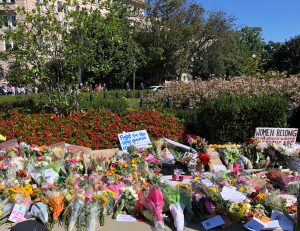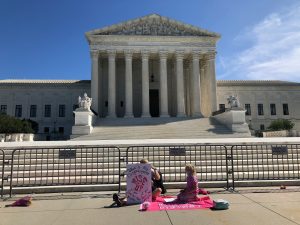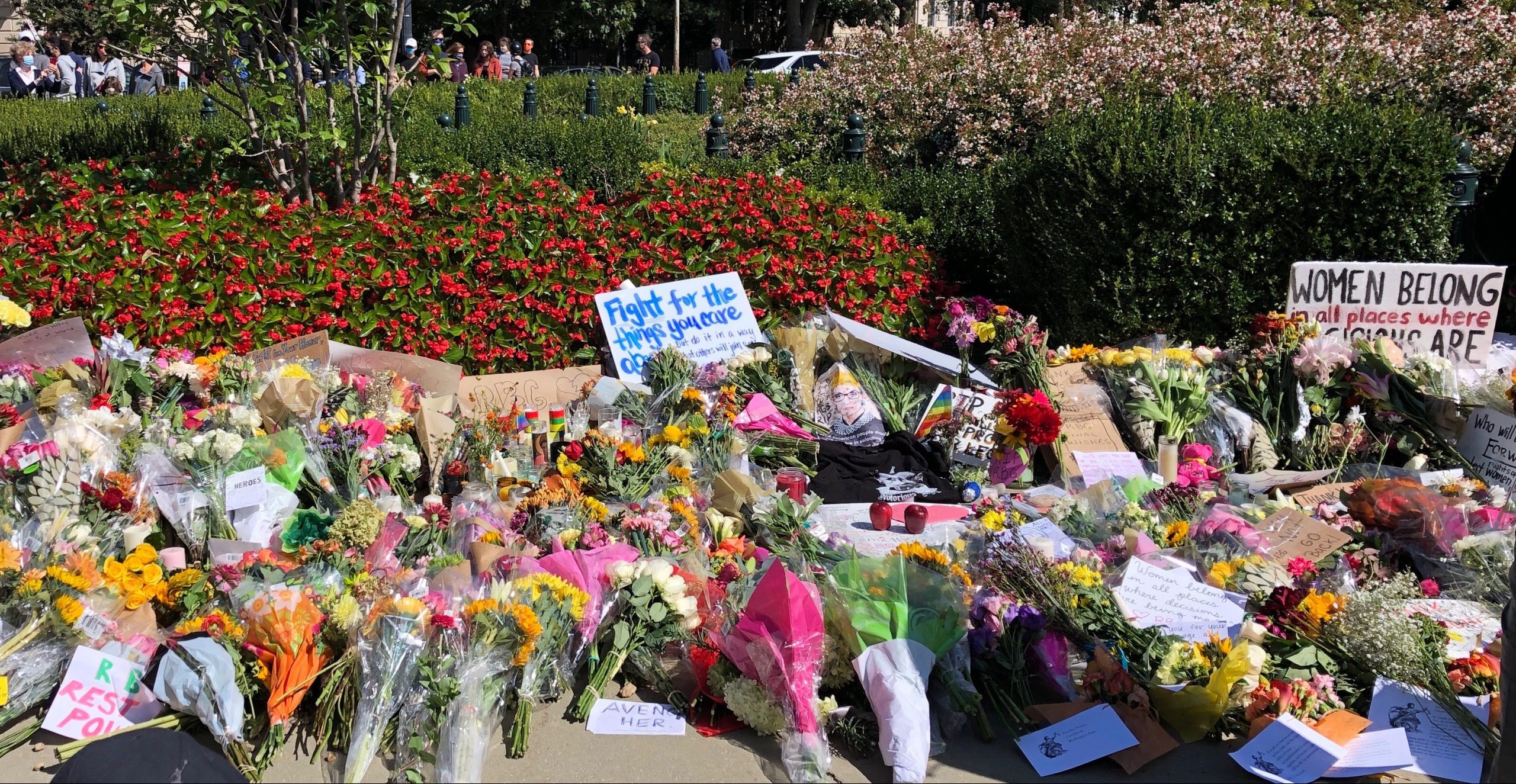WASHINGTON – By 11 a.m. on September 19, flowers, stones, signs and notes had started piling up near the Supreme Court of the United States. Supreme Court Police barricades blocked the steps to the Supreme Court Building as police officers directed where mourners could put the items they brought to honor the death of Justice Ruth Bader Ginsburg. As the memorial to Ginsburg and her legacy grew, so did the questions about what her death means for the country she served.

According to a statement from the court, Ginsburg died in her home, surrounded by family, on September 18 due to complications of metastatic pancreatic cancer. She was 87 and served on the court for 27 years.
As a champion of women’s rights, Ginsburg gained a celebrity-like following during her time as a Supreme Court justice. This could be seen on Saturday as many in the crowd in front of the building sported shirts and masks with her face, quotes and iconic jabots. The crowd was filled with young and old, groups of friends and families, showing Ginsburg’s life and work impacted a range of demographics.
“[Ginsburg] is just one of the greatest heroes of our time, of our country. She’s just a warrior for womens’ rights and civil rights,” said Catherine Guttman-MacCabe of Arlington, Virginia, on why she came to the supreme court on Saturday morning. Guttman-MacCabe was joined by her husband Chris and daughter Abigail to honor Ginsburg.
“She started something and I’m sad that she wasn’t able to see the first woman vice president elected and I wish she could have passed at a more peaceful time,” she said.
While many came just to pay their respects and lay flowers, others came with the intent to make a statement. A few people sat or kneeled in front of the barricades with signs, one asking “What would RBG do?” while another highlighted controversial statements and rulings that Ginsburg had made in her life, specifically her remarks condemning Colin Kaepernick’s NFL protests and a ruling earlier this year that cleared the way for a natural gas pipeline under the Appalachian Trail.

Amanda Moskowitz of North Potomac, Maryland, was one of the people with a sign, which read “When is this Congress gonna rise up,” on one side, and “The world turned upside down,” on the other, in reference to the award-winning Broadway musical “Hamilton.” She brought her two young children, and expressed the importance of having them there with her.
“I want them to see the crowd, I want them to pay respects, I want them to have a memory of this moment,” said Moskowitz. “There’s so little we can do these days except for vote, but when we show up and pay our respects, we put this energy out into the world. What she did mattered and they need to know that and they need to be inspired to do the same thing for other people.”
Ginsburg’s death leaves a country wondering what happens next. In 2016, after the death of Justice Antonin Scalia, Republican senators refused to act on President Barack Obama’s Supreme Court nomination, and instead waited until after the 2016 election in hopes of a nomination from a newly-elected Republican president. Scalia died in February, nearly 11 months away from the 2016 election, while Ginsburg’s death was a mere 45 days from the 2020 election.
“President Trump’s nominee will receive a vote on the floor of the United States Senate,” said Senate Majority Leader Mitch McConnell in a statement on September 18. If this vote takes place before the November 3 election, it will break the precedent set by McConnell himself in 2016.
To stop a vote on a Supreme Court nominee, a majority of the Senate would have to refuse to vote on the nomination. The likelihood of this happening in a majority Republican Senate under a Republican president is unknown.
The Guttman-MacCabes hope that the precedent set in 2016 about nominating a Supreme Court Justice during an election year holds, and that a nomination can be made under Democrat Joe Biden if he is elected.
“We really hope that the youth come out and vote, that they take the opportunity to change their own future,” said Chris Guttman-Maccabe. “Eighteen to 20 year olds can change the future of the country but they’ve gotta vote.”

